新概念英语第一册Lessons 73~74(形变副)课件(共40张PPT)
文档属性
| 名称 | 新概念英语第一册Lessons 73~74(形变副)课件(共40张PPT) |
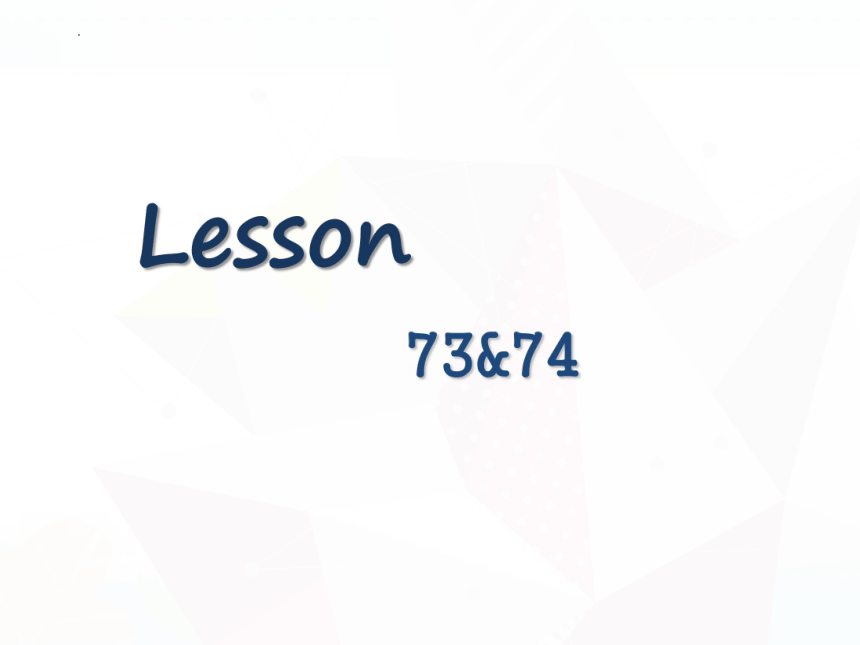
|
|
| 格式 | pptx | ||
| 文件大小 | 11.6MB | ||
| 资源类型 | 教案 | ||
| 版本资源 | 新概念英语 | ||
| 科目 | 英语 | ||
| 更新时间 | 2025-05-21 17:25:26 | ||
图片预览

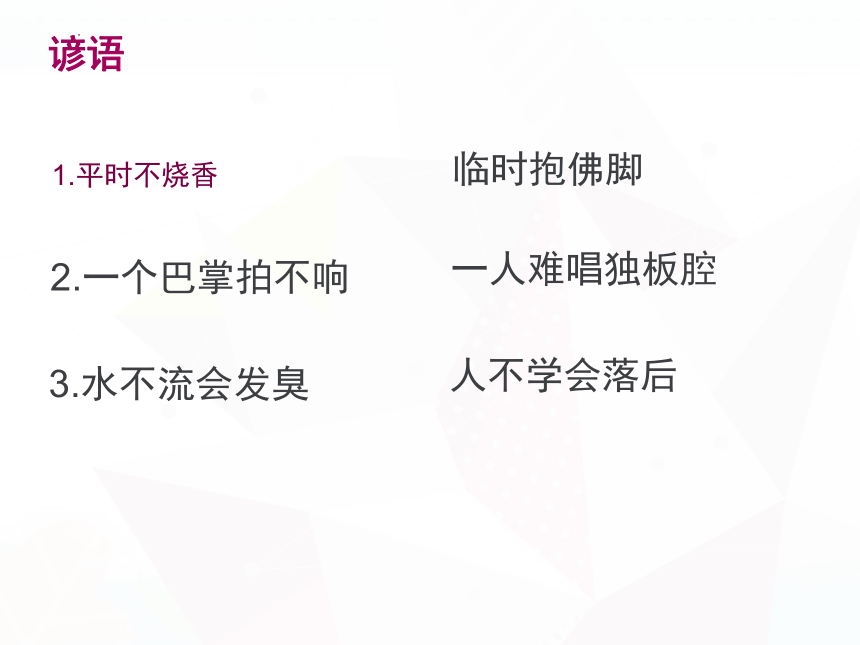

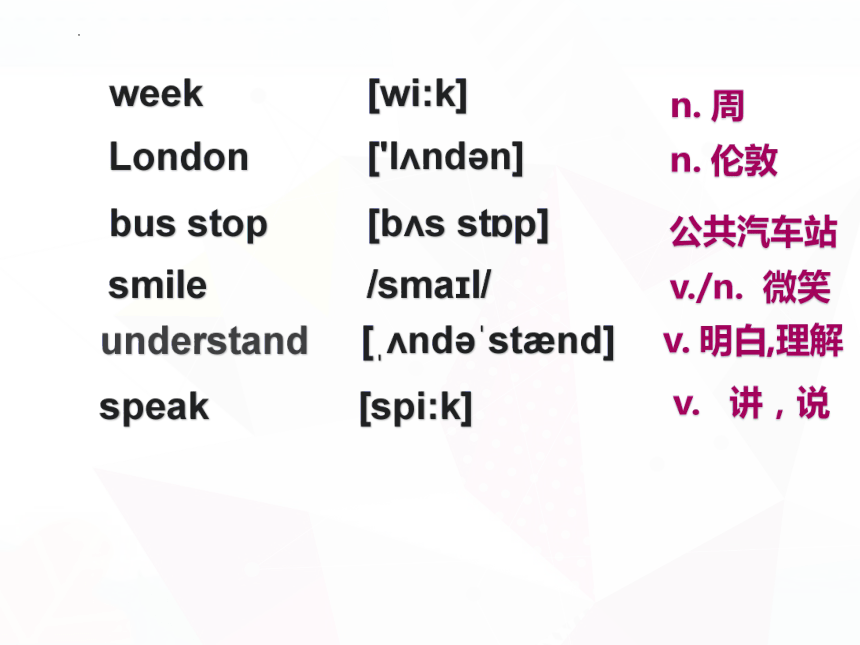
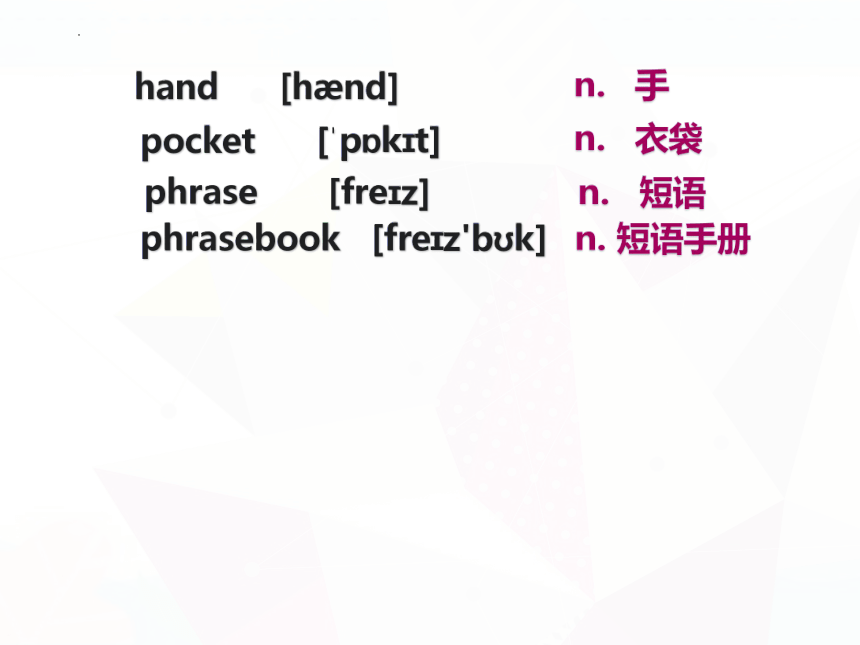


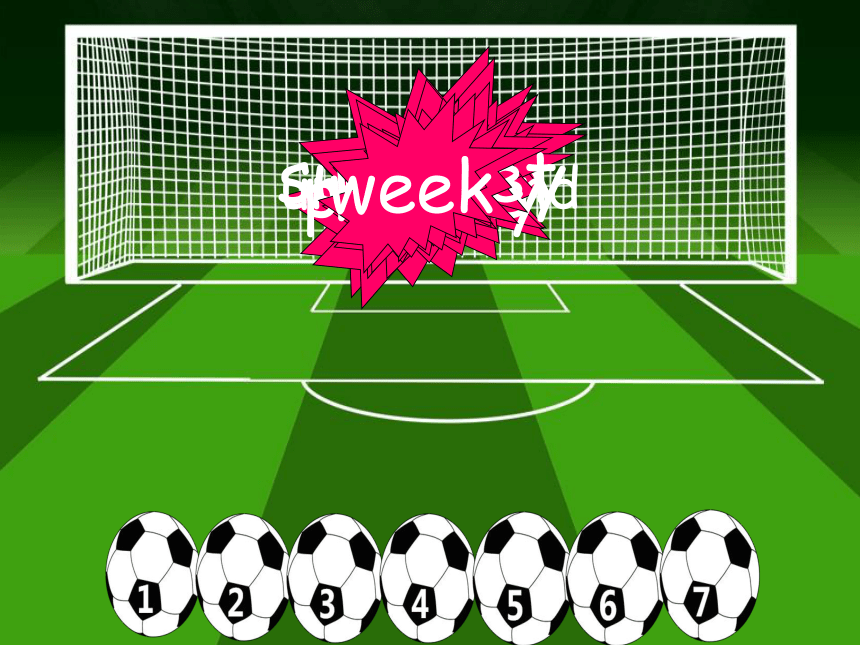
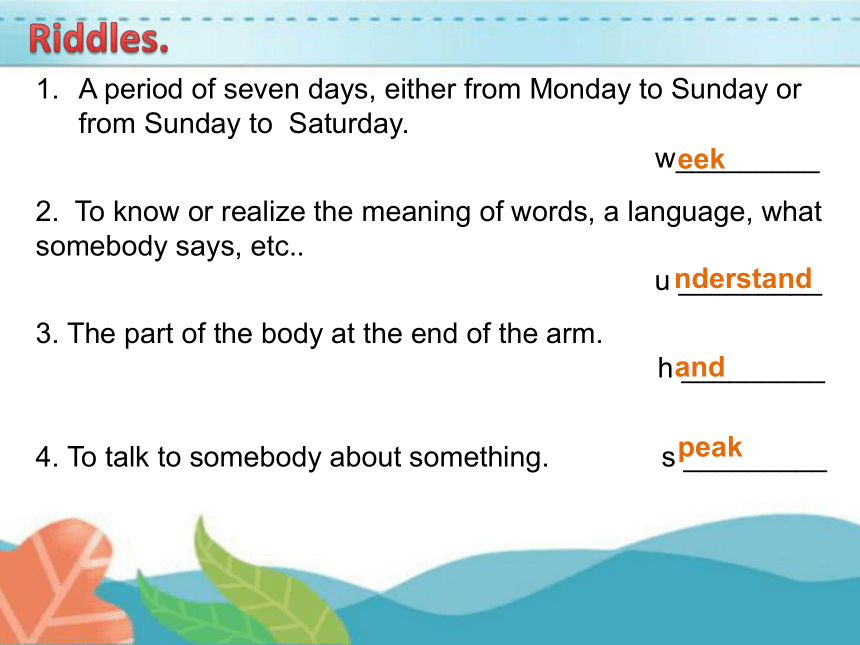

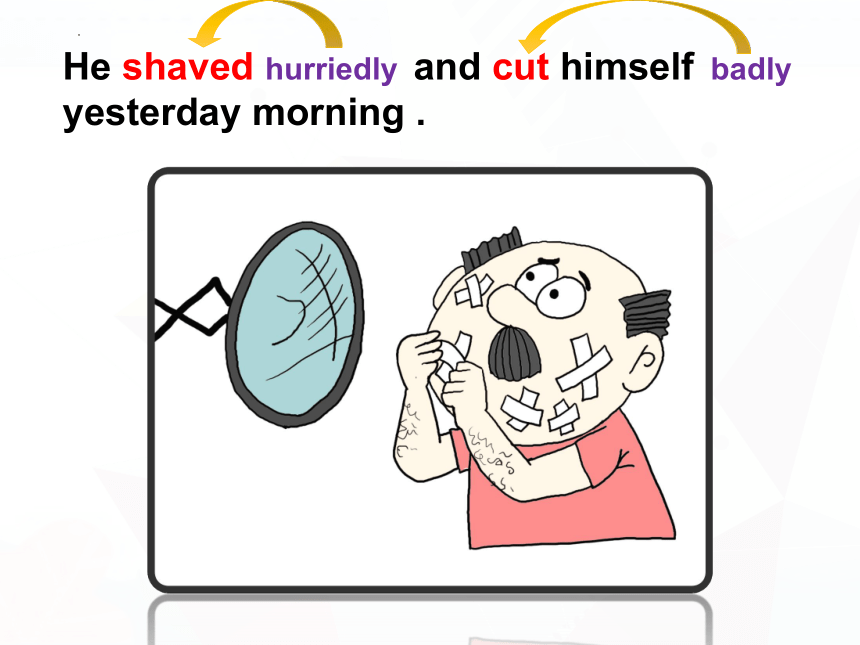
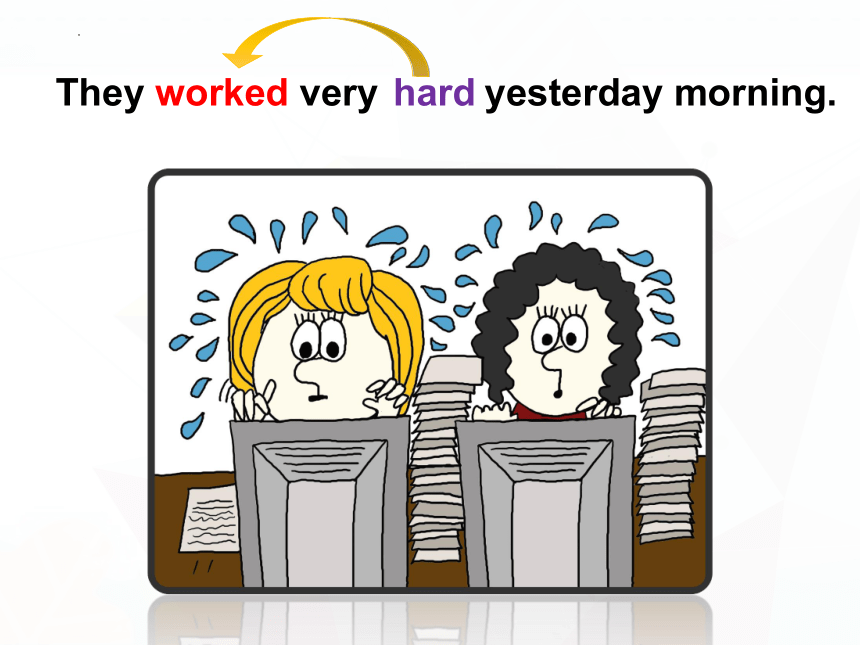
文档简介
(共40张PPT)
Lesson
73&74
谚语
1.平时不烧香
临时抱佛脚
2.一个巴掌拍不响
一人难唱独板腔
3.水不流会发臭
人不学会落后
New Words Time
week [wi:k]
London ['l nd n]
bus stop [b s st p]
smile /sma l/
n. 周
n. 伦敦
公共汽车站
v./n. 微笑
understand [ nd st nd]
speak [spi:k]
v. 明白,理解
v. 讲,说
hand [h nd]
pocket [ p k t]
phrasebook [fre z'b k]
phrase [fre z]
n. 手
n. 衣袋
n. 短语手册
n. 短语
suddenly
pleasantly
slowly
hurriedly
thirstily
adv. 突然地
adv. 愉快地
adv. 缓慢地
adv. 匆忙地
adv. 口渴地
suddenly
understand
slowly
phrase
pocket
speak
week
Riddles.
4. To talk to somebody about something. s _________
A period of seven days, either from Monday to Sunday or from Sunday to Saturday.
w_________
2. To know or realize the meaning of words, a language, what somebody says, etc..
u _________
3. The part of the body at the end of the arm.
h _________
eek
nderstand
and
peak
Grammar Time
He shaved and cut himself
yesterday morning .
hurriedly
badly
They worked very yesterday morning.
hard
He took a cake and it _______(quick / quickly).
quickly
ate
The bus ________ yesterday afternoon and we home ________.
( slow / slowly)
(late / lately)
arrived
went
slowly
late
思考:形容词为什么要变副词?
Jane is a careful driver.
Jane drives carefully.
You are a good singer.
You sing well.
因为形容词只能修饰
人或物,而副
词要修饰动作。
adj.
adv.
adj.
adv.
1.副词的变化规则:
1)直接+ly
2)以辅y结尾,把y变i+ly
3)以le结尾,变le为ly
4)形容词和副词形式相同
2.副词的主要用法
3.副词的位置:
修饰动词时,副词放在动词之后
He runs quickly.
late-late early-early hard-hard high-high
副词
quick
-quickly
happy
-happily
副词主要用来修饰动词
Luckily,I am a girl.
修饰句子时,副词放在句首。
副词修饰句子
terrible
-terribly
gentle-
gently
写出下列形容词的副词形式
1.loud → 2.easy →
3.quiet → 4.wonderful→
5.happy→ 6.hard →
7.hungry → 8.heavy →
9.late→ 10.early →
补充特殊点
注意:
manly motherly
daily weekly monthly yearly
friendly lively lovely lonely
是形容词
易混点
1. sick PK ill
sick: 名前系后
ill: 系动词后
2. late PK lately
late adj./adv 晚的 晚
lately adv. 最近 近来
3. hard PK hardly
hard adj./adv 努力地,艰难地
hardly adv. 几乎不
He is _______. He is a ______ boy.
sick/ ill
sick
I'm sorry I'm ___.I can't sleep well ______
lately
He doesn't study very _____.He can ______ answer
the question.
hardly
hard
late
单项选择
( )1. This train is _____. It can run_____ .
A. quick, quick B. fast, fast
C. quickly, fast D. quickly, quickly
( )2. It is_____to speak Japanese so I study_____on Japanese class.
A. hard, hardly B. hardly, hard C. hard, hard D. hardly, hardly
( )3. The _____ birds get the worm. They get up_____ .
A. early, early B. late, late C. early, late D. late, early
( )4. She speaks little, and likes to sit on a_____corner.
A. noise B. quiet C. happy D. easy
( )5. Eating_____ is bad for your health.
A. carefully B. happily C. heavily D. quickly
改错
1. The song sounds well.
___________________________________
2. The students listen to the teacher careful.
___________________________________
3. He doesn’t like eating apples. I don’t like, too.
___________________________________
5. The sun is shining _________. (bright)
4. It’s raining _________outside. (heavy)
3. The children are singing _________ at home. (happy)
2. The dog is looking at the food _________. (hungry)
practice · grammar
1. Peter is thanking the man _________. (polite)
politely
hungrily
happily
heavily
brightly
Make sentences.
1. It’s snowing ________. We have to stay at home.
A. heavily B. hardly C. strongly
2. John can speak English ________.
A. very good B. very welly C. very well
3. You’d better drive ________ at night.
A. slow B. careful C. slowly
4. The waiter smiled ________ and showed me the menu.
A. pleasant B. pleasantly C. friend
practice · grammar
Multiple choice.
Text Understanding
How much do you know about London
What’s the climate like in London
It’s pleasant.
It’s not too cold in winter or too hot in summer.
It’s wet and foggy(多雾的).
Do you know any famous view spots(景点) in London
London Famous Attractions
(伦敦著名的旅游景点)
The London Eye
伦敦眼
Big Ben 大本钟
The Thames 泰晤士河
British Museum
大英博物馆
London Bridge
伦敦大桥
King Street 国王街
the way to King street
Last week Mrs. Mills went to London.
She does not know London very well, and she lost her way.
Suddenly, she saw a man near a bus stop.
'I can ask him the way.' she said to
herself.
'Excuse me,' she said. 'Can you tell
me the way to King Street, please '
The man smiled pleasantly.
He did not understand English! He spoke
German. He was a tourist.
Then he put his hand into pocket,
and took out a phrasebook.
He opened the book and found a phrase.
He read the phrase slowly.
'I am sorry,' he said. 'I do not speak
English.'
Lesson
73&74
谚语
1.平时不烧香
临时抱佛脚
2.一个巴掌拍不响
一人难唱独板腔
3.水不流会发臭
人不学会落后
New Words Time
week [wi:k]
London ['l nd n]
bus stop [b s st p]
smile /sma l/
n. 周
n. 伦敦
公共汽车站
v./n. 微笑
understand [ nd st nd]
speak [spi:k]
v. 明白,理解
v. 讲,说
hand [h nd]
pocket [ p k t]
phrasebook [fre z'b k]
phrase [fre z]
n. 手
n. 衣袋
n. 短语手册
n. 短语
suddenly
pleasantly
slowly
hurriedly
thirstily
adv. 突然地
adv. 愉快地
adv. 缓慢地
adv. 匆忙地
adv. 口渴地
suddenly
understand
slowly
phrase
speak
week
Riddles.
4. To talk to somebody about something. s _________
A period of seven days, either from Monday to Sunday or from Sunday to Saturday.
w_________
2. To know or realize the meaning of words, a language, what somebody says, etc..
u _________
3. The part of the body at the end of the arm.
h _________
eek
nderstand
and
peak
Grammar Time
He shaved and cut himself
yesterday morning .
hurriedly
badly
They worked very yesterday morning.
hard
He took a cake and it _______(quick / quickly).
quickly
ate
The bus ________ yesterday afternoon and we home ________.
( slow / slowly)
(late / lately)
arrived
went
slowly
late
思考:形容词为什么要变副词?
Jane is a careful driver.
Jane drives carefully.
You are a good singer.
You sing well.
因为形容词只能修饰
人或物,而副
词要修饰动作。
adj.
adv.
adj.
adv.
1.副词的变化规则:
1)直接+ly
2)以辅y结尾,把y变i+ly
3)以le结尾,变le为ly
4)形容词和副词形式相同
2.副词的主要用法
3.副词的位置:
修饰动词时,副词放在动词之后
He runs quickly.
late-late early-early hard-hard high-high
副词
quick
-quickly
happy
-happily
副词主要用来修饰动词
Luckily,I am a girl.
修饰句子时,副词放在句首。
副词修饰句子
terrible
-terribly
gentle-
gently
写出下列形容词的副词形式
1.loud → 2.easy →
3.quiet → 4.wonderful→
5.happy→ 6.hard →
7.hungry → 8.heavy →
9.late→ 10.early →
补充特殊点
注意:
manly motherly
daily weekly monthly yearly
friendly lively lovely lonely
是形容词
易混点
1. sick PK ill
sick: 名前系后
ill: 系动词后
2. late PK lately
late adj./adv 晚的 晚
lately adv. 最近 近来
3. hard PK hardly
hard adj./adv 努力地,艰难地
hardly adv. 几乎不
He is _______. He is a ______ boy.
sick/ ill
sick
I'm sorry I'm ___.I can't sleep well ______
lately
He doesn't study very _____.He can ______ answer
the question.
hardly
hard
late
单项选择
( )1. This train is _____. It can run_____ .
A. quick, quick B. fast, fast
C. quickly, fast D. quickly, quickly
( )2. It is_____to speak Japanese so I study_____on Japanese class.
A. hard, hardly B. hardly, hard C. hard, hard D. hardly, hardly
( )3. The _____ birds get the worm. They get up_____ .
A. early, early B. late, late C. early, late D. late, early
( )4. She speaks little, and likes to sit on a_____corner.
A. noise B. quiet C. happy D. easy
( )5. Eating_____ is bad for your health.
A. carefully B. happily C. heavily D. quickly
改错
1. The song sounds well.
___________________________________
2. The students listen to the teacher careful.
___________________________________
3. He doesn’t like eating apples. I don’t like, too.
___________________________________
5. The sun is shining _________. (bright)
4. It’s raining _________outside. (heavy)
3. The children are singing _________ at home. (happy)
2. The dog is looking at the food _________. (hungry)
practice · grammar
1. Peter is thanking the man _________. (polite)
politely
hungrily
happily
heavily
brightly
Make sentences.
1. It’s snowing ________. We have to stay at home.
A. heavily B. hardly C. strongly
2. John can speak English ________.
A. very good B. very welly C. very well
3. You’d better drive ________ at night.
A. slow B. careful C. slowly
4. The waiter smiled ________ and showed me the menu.
A. pleasant B. pleasantly C. friend
practice · grammar
Multiple choice.
Text Understanding
How much do you know about London
What’s the climate like in London
It’s pleasant.
It’s not too cold in winter or too hot in summer.
It’s wet and foggy(多雾的).
Do you know any famous view spots(景点) in London
London Famous Attractions
(伦敦著名的旅游景点)
The London Eye
伦敦眼
Big Ben 大本钟
The Thames 泰晤士河
British Museum
大英博物馆
London Bridge
伦敦大桥
King Street 国王街
the way to King street
Last week Mrs. Mills went to London.
She does not know London very well, and she lost her way.
Suddenly, she saw a man near a bus stop.
'I can ask him the way.' she said to
herself.
'Excuse me,' she said. 'Can you tell
me the way to King Street, please '
The man smiled pleasantly.
He did not understand English! He spoke
German. He was a tourist.
Then he put his hand into pocket,
and took out a phrasebook.
He opened the book and found a phrase.
He read the phrase slowly.
'I am sorry,' he said. 'I do not speak
English.'
同课章节目录
